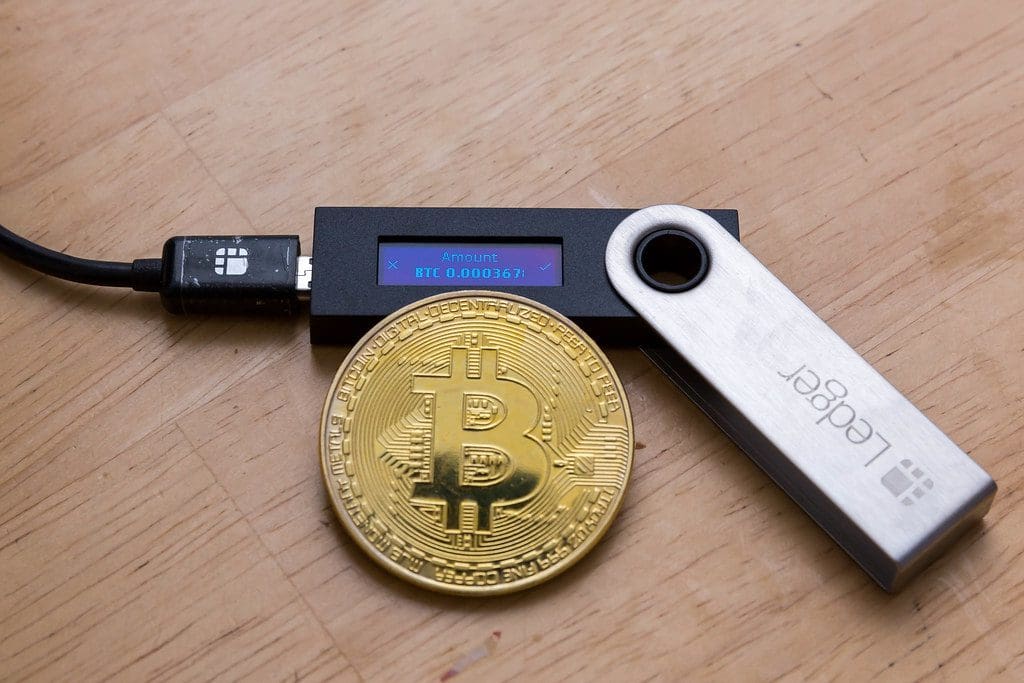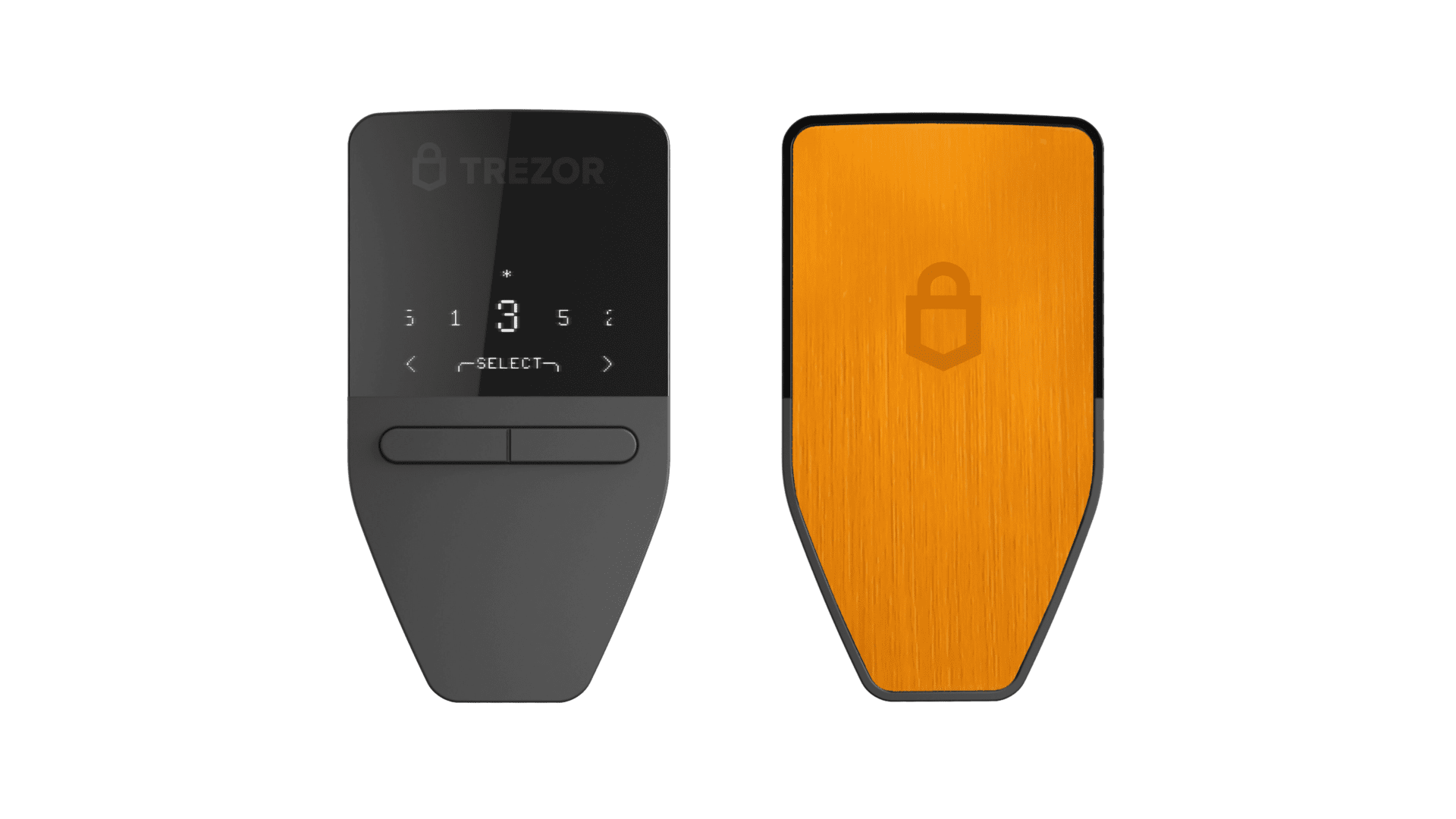What are hardware wallets
Hardware wallets consist of an essential device for anyone who wants to approach blockchain technology and, of course, cryptocurrencies. They provide security by ensuring the viability of blockchain transactions, and for that reason alone one should consider using them.
But, before starting, it would be necessary to have a clear understanding of what a wallet actually consists of. It is a wallet in which the private keys of one’s cryptocurrencies are placed. There are two types: custodial and non-custodial; the difference lies in the actual ownership over the cryptocurrencies, while being able to use them in either case.
Index
Why I need an Hardware Wallet?
A Hardware Wallet is a device that allows you to store your crypto in maximum security, ie:
- By holding 100% control of it (you are the sole owner of the seed phrase and private key of the wallet)
- By holding it offline (since the wallet is physical, sensitive operations such as signing transactions always take place without an internet connection)
These are two very important aspects that can make all the difference, especially when you start holding significant amounts of crypto.
While the former applies to any wallet (even an online one, such as Metamask), the latter, on the other hand, is the key feature of Hardware wallets, and is what makes them more secure.
If, by using a software wallet installed on one’s PC, it is easier to run into scams that empty it from us, with a physical counterpart this is rarer.
Mind you: one must again pay close attention to the aspects of securing especially one’s retrieval phrase, but at least there is no chance that an attacker could steal such data from our PC, as it is stored directly on the offline device .
Hardware wallet crypto: how it works
In essence, a hardware wallet ensures that you keep your assets safe, even when the computer you are using turns out to be poorly protected or compromised by some malware. Their purpose, in fact, is to offer an additional layer of protection against cyber attacks, phishing operations and, indeed, computer viruses.
It can work with multiple blockchains simultaneously, and is particularly practical if you have assets involving multiple coins, as is common for those operating in the crypto ecosystem. Bitcoin, Ethereum and the various altcoins can be well managed from a single device, and each type of asset can be backed up with a single reset phrase.
In most cases, a hardware wallet consists of a small plug-in device (a thumb drive, to be clear), and it serves as a “key” to be able to access one’s crypto assets, securely, and from wherever one may be. It is also an alternative channel to access the functions of the various DApps without having to necessarily create an account. Not only related to the crypto world, indeed, nothing prohibits one from exploiting it to access commonly used applications, such as it could be a social or one’s mailbox.

Or, again, it can be leveraged for trading without having one’s assets moved to an exchange wallet, allowing those who see fit to proceed with exchange transactions while constantly maintaining custody of their tokens, at all times and during all kinds of processes. In essence, a way to save time by skipping the various deposit delays, related fees, and imposed withdrawal limits.
The hallmark of hardware wallets
But why is this crucial? To answer the question we must start with the observation, or realization, that cryptocurrencies are never actually stored within a wallet. Nor even in a hardware wallet, let’s be clear.
The place where cryptocurrencies “live” is on the blockchain, regardless of the type of transaction being implemented. A hardware wallet, then, has the simple purpose of storing one’s private keys, which in turn are the way to access one’s funds stored at a specific address on the reference blockchain. And it is in this way that a hardware wallet becomes necessary to be able to interact, as securely as possible, with one’s assets.
Another feature of a hardware wallet, on the other hand, is that they are considered “cold storage,” as they allow private keys to be excluded from the Internet sphere. This may sound trivial, but it is a crucial aspect if you are trying to mitigate as much as possible the risk of your cryptocurrencies being exposed to an online attack. Incidentally, to date it is also difficult to verify whether thefts have ever taken place from hardware wallets, which therefore maintain a good “track record,” unlike the many frauds that have occurred from network-connected devices.
"Cryptocurrencies are never actually stored within a wallet. The place where cryptocurrencies "live" is the blockchain"
Hardware wallet: am I safe?
Private keys, if you hadn’t guessed, allow you to be able to perform your own “signature,” which in turn is necessary to be able to perform any transaction on the blockchain. The signature depends directly on the private keys, and demonstrates the actual ownership of the private keys. It goes without saying, then, that a “signature” is impossible to forge without being in possession of the private keys, and that no one can perform a transaction in the name of another wallet (or person).
The hardware wallet ultimately merely protects the private keys by means of a PIN and, in the case, an optional passphrase . Even in the event that the device is lost, or stolen, then, it is almost impossible for someone to extract the keys, which, by the way, as mentioned, would also be out of the scope of the Internet.
Should such a scenario occur, as could be the theft of the device, one can resort to the use of a recovery phrase (or seed-phrase) that is, a chain of words that regenerate the private keys, having performed a backup. One can then at that point, in case, move the keys to a new hardware wallet.
There are, as can be guessed, various types of hardware wallets, the use of which, however, retains aspects common to all of them. The first is the level of security, which ensures that each owner is confident that his or her assets are safe; the second is the use of a PIN, which allows the wallet to be exploited once connected to the computer. Finally, the mode of use once faced with a transaction: once executed, it must be confirmed on the device itself.
Famous hardware wallets: Ledger
The market leader is certainly Ledger, as well as the most popular, with its most popular models Nano X, Nano S Plus and the latest Flex. Wallet variants consist mainly of the “memory” of the device, while modes of use, functions and design remain common.

Specifically, the Nano X can go as far as supporting up to 100 dApps.
Nano S Plus, which revamps the Nano S product type, has as its distinguishing feature precisely that it has increased the device’s memory so that more applications can be used.
What then distinguishes Nano X is the presence of the battery (the others must be connected to a power source to function) and Bluetooth connectivity.
As for Flex, it is a more expensive device with an e-ink screen and touchscreen.
Are there alternatives? Absolutely. Trezor is another famous brand in the industry and makes open source software its strong point. Let’s find out more about it.
Trezor, the alternative
An alternative to Ledger is Trezor, a device with a strength: open source code.
While Ledger is closed, anyone can read and study the code that governs the operation of a Trezor. This increases the chance that a vulnerability will be identified, thereby protecting users.
You can learn more about this brand in our article dedicated to Trezor.
Regardless of the choice, the hardware wallet is an indispensable tool to better protect one’s crypto assets, indispensable for all crypto investors who hold enough capital to justify their purchase.
Bitcoin only hardware wallet
Are you a maximalist and only hold bitcoin? Then you probably prefer to own one of the so-called “bitcoin only” wallets.
These are hardware wallets that support only bitcoin instead of a variety of cryptos.
But how? What’s the point? While I’m at it, it makes sense to buy one that supports everything, right?
Well, actually bitcoin-only wallets are typically more secure: being focused on handling only bitcoin, the so-called “attack surface” (i.e., amount of possible security holes that can be used for hacks or exploits) is smaller.
In short, if you only hold bitcoin, it is preferable to choose a bitcoin-only wallet.
To give some examples, there is the bitcoin-only version of Trezor (strictly orange!), but also others such as Coldcard or Bitbox.

Best hardware wallets
But then. Which one is the best? Which is the most secure wallet? Well, the answer as always depends.
It depends on how much you are willing to spend, how important ease of use, portability or other features are to you.

